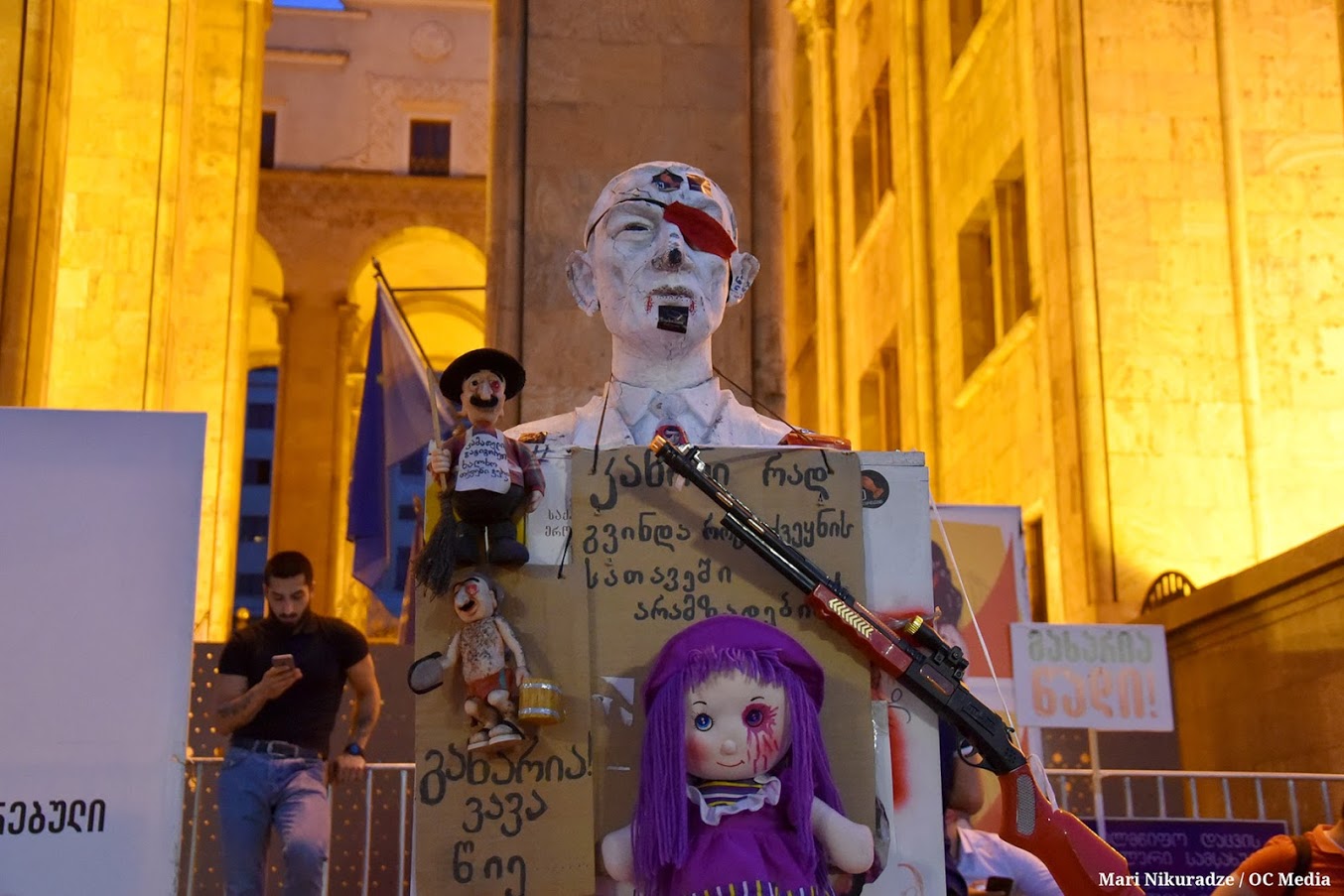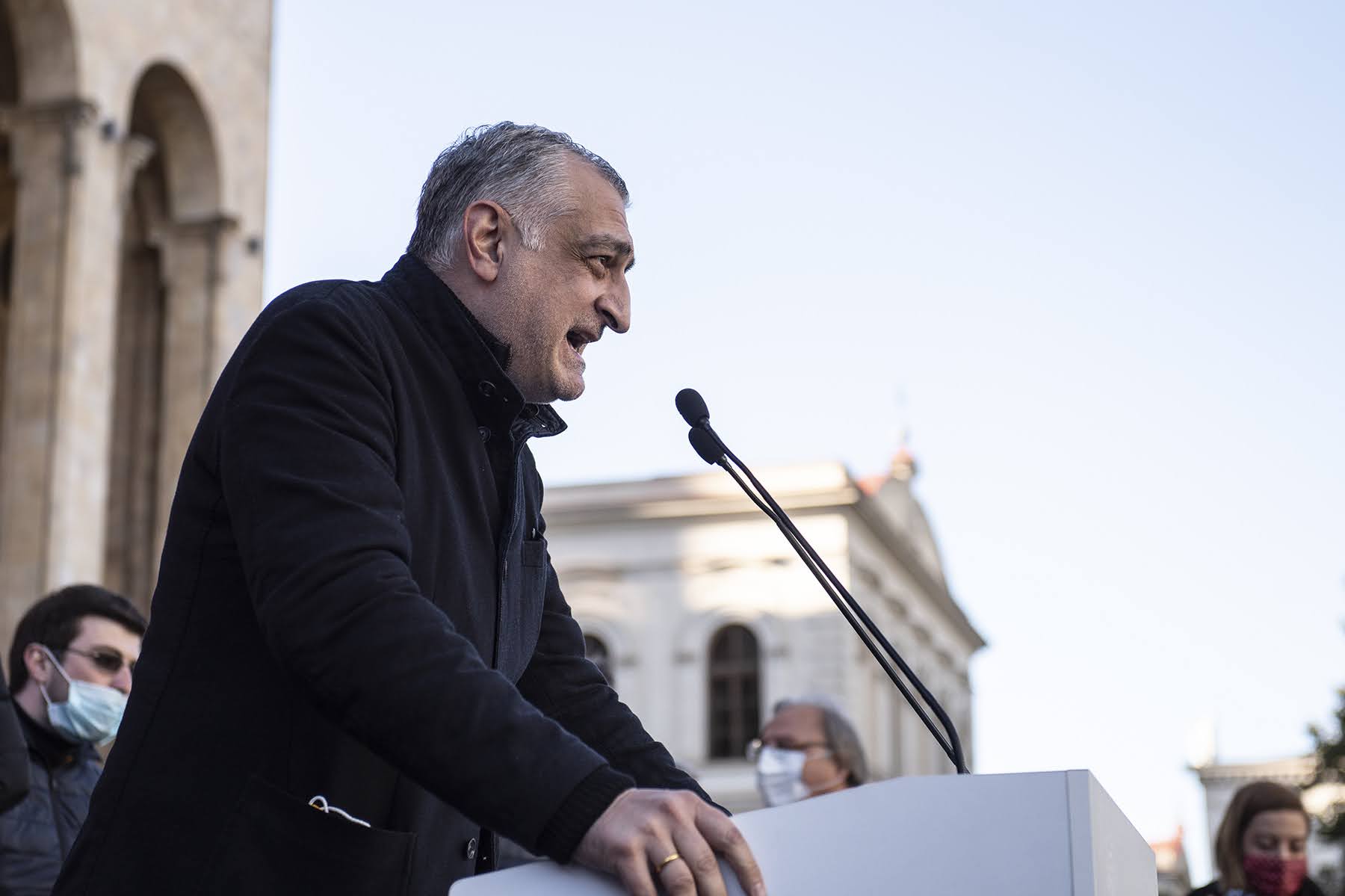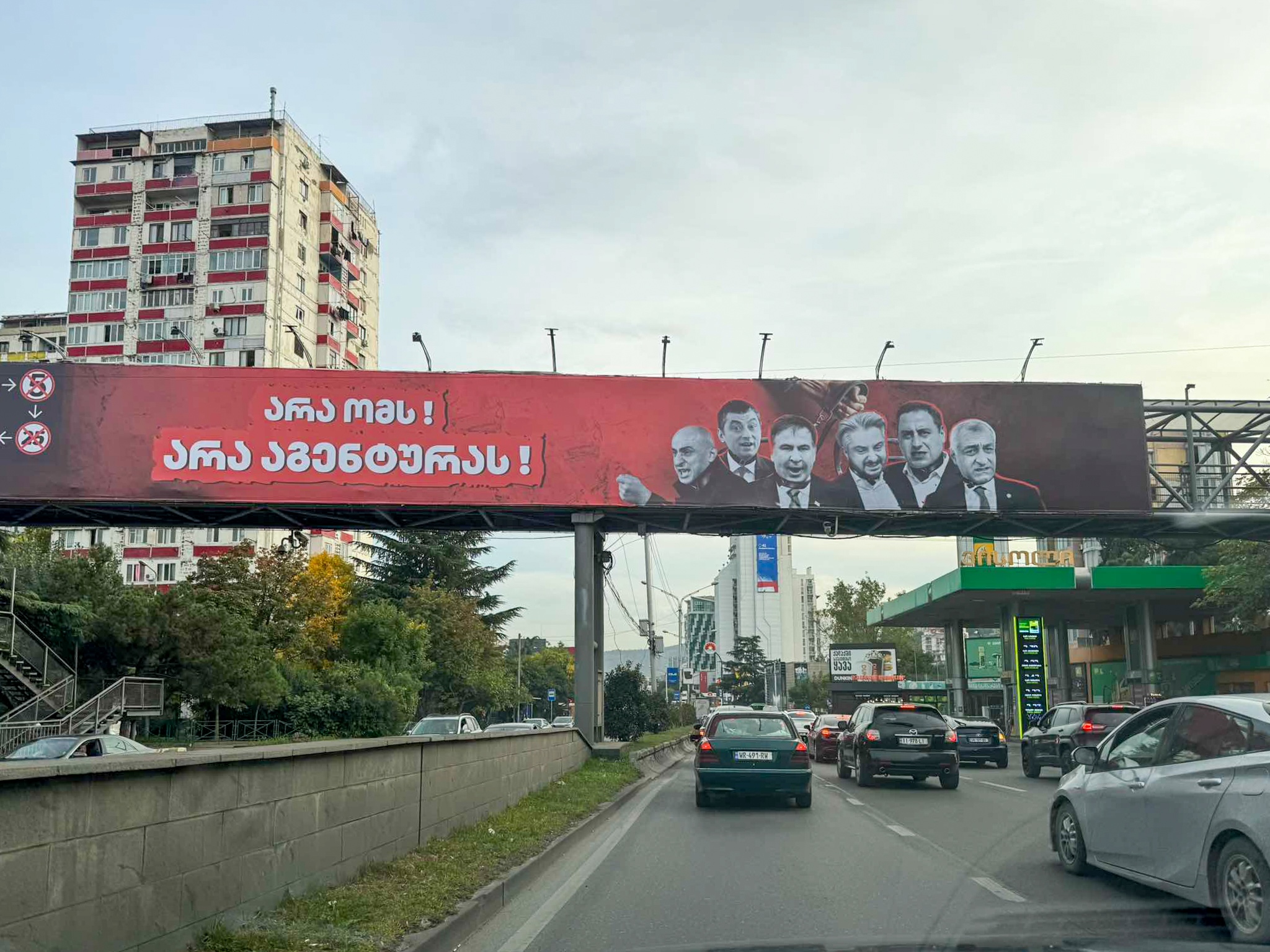Georgian Dream says party appointed Gakharia prime minister as ‘tribute to foreign spymaster’

Georgian Dream’s Executive Secretary Mamuka Mdinaradze has accused opposition leader Giorgi Gakharia of being a spy, adding that the party appointed him prime minister in 2019 as a tribute to his foreign patrons.
Gakharia served as interior minister under Georgian Dream from November 2017 to September 2019, when he was nominated for the prime ministership by party founder Bidzina Ivanishvili. He later fell out with the party and resigned in 2021, going on to form his own party, For Georgia.
During a press briefing on Thursday, Mdinaradze alleged that Gakharia attempted to provoke a ‘full-scale armed conflict’ with Russia in 2019 by setting up a police checkpoint with South Ossetia upon instructions from abroad. At the time, Gakharia was serving as Georgia’s Interior Minister.
The Chorchana crisis began in August 2019 when Georgian authorities established a police checkpoint near the central village of Chorchana, citing concerns over alleged South Ossetian-Russian plans to advance into the neutral buffer zone. This move triggered a response from South Ossetia, who created their own checkpoint in the area under their control.
‘The main goal of this provocation was to artificially trigger a new armed conflict, which very likely could have escalated into a full-scale war. This act can be seen as a potential model for provocations he will certainly carry out if he gains access to power’, Mdinaradze warned on 10 October.
While Mdinaradze argued on Thursday that Gakharia’s decision caused ‘reputational damage’ to the state, at the time, the then-Interior Minister was widely praised by pro-government media for strengthening Georgian positions near South Ossetia. Georgian Dream was also generous in its praise of Gakharia when they positioned him as their top electoral candidate and prospective prime minister in September 2020.
On Thursday, Mdinaradze also reiterated previous criticisms of Gakharia for the 2018 raids on several Tbilisi nightclubs, deploying riot police against demonstrators opposing a power plant project in the Pankisi Valley in April 2019, and using excessive police force against anti-government protesters later that year — issues that Gakharia’s former party only raised following his resignation in 2021.

A ‘rant from Ivanishvili’s clown’
Mdinaradze warned voters against the dangers of Gakharia regaining power through the upcoming elections, scheduled for 26 October. He also tried to address the contradiction between Gakharia’s alleged ‘treacherous’ decisions related to Chorchana, and Georgian Dream positioning him to be prime minister.
‘It’s natural for someone to question how, if one person caused so much harm to the state, they were promoted from Minister of Internal Affairs to Prime Minister. And you probably have this question too. The answer is certainly not simple, but we can consider it a form of tribute we had to pay to Gakharia’s patrons’.
Mdinaradze added that by promoting Gakharia to the country’s leadership in 2019, their decision ‘distanced Gakharia from the Ministry of Internal Affairs’, a government office which he claimed plays a key role in shaping the country’s public image.
In response, Gakharia dismissed the latest accusations as a ‘rant’ from Ivanishvili’s ‘clown’ and ‘slave’. He proposed establishing a parliamentary commission after the election to investigate ‘serious signs of betraying the country’s national interests’. While avoiding detailed discussion of the Chorchana crisis, Gakharia advocated for an investigation into both this incident and Georgian Dream’s recent proposal to apologise for the 2008 August War as part of the parliamentary inquiry.
The remainder of Mdinaradze’s briefing on Thursday was dedicated to describing Mamuka Khazaradze, the leader of another opposition grouping — the Strong Georgia coalition — as a similar ‘spy’ of unnamed international forces acting against Georgia. He characterised Khazaradze as a business figure who profited from the United National Movement’s illegal seizure of assets from various local businesses.

Mdinaradze argued that Khazaradze, as well as Gakharia, was no different from Mikheil Saakashvili, the former Georgian president, or Nika Gvaramia, one of the leaders of the opposition Coalition for Change alliance.
‘People need to know that every vote given to any of these espionage parties poses not only a great danger to our peaceful and dignified future but also a threat to the very existence of the country’, Mdinaradze warned.

In recent weeks, the ruling party tacitly acknowledged four opposition groups — Unity — National Movement, Coalition for Change, Strong Georgia, and Gakharia For Georgia — as their main rivals with a potential to pass the 5% electoral threshold. They have grouped these parties together in attack ads and speeches, labelling them as a unified bloc of ‘spies’ allegedly seeking to drag Georgia into a conflict with Russia. Thursday’s Georgian Dream press briefing appeared to focus on dismissing the idea that a ‘third political force’, led by Khazaradze and Gakharia and their respective groups, was even real.
[Read more: Who’s who in Georgia’s parliamentary elections?]










